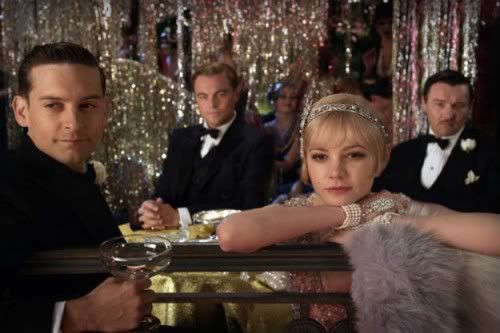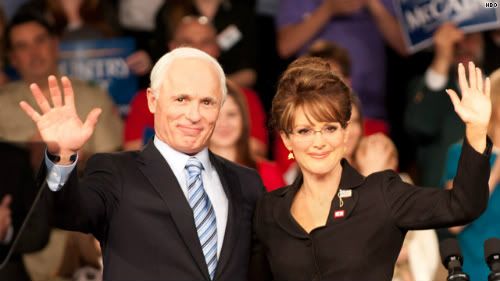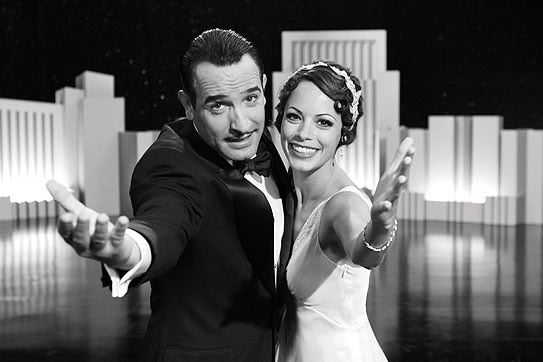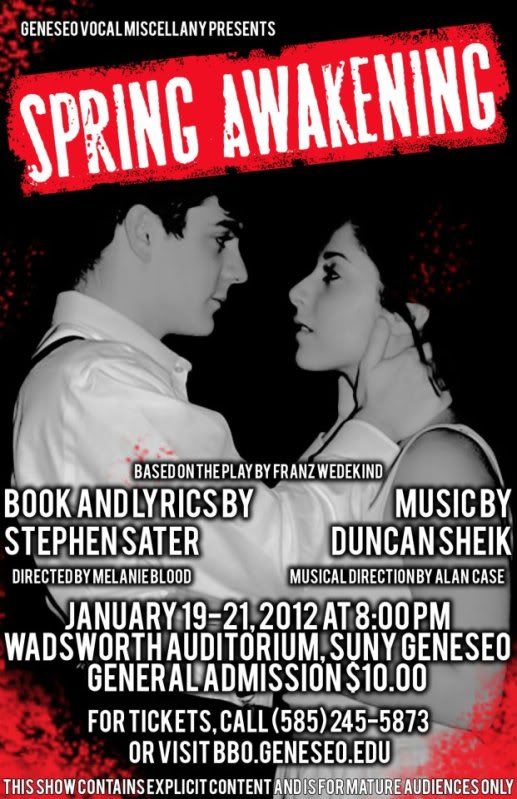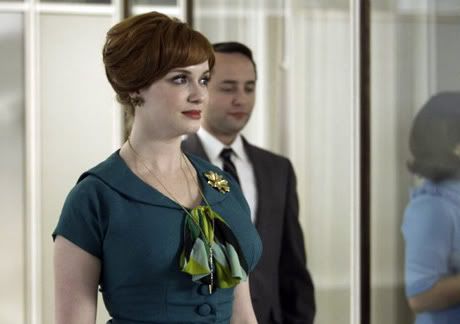
“The Other Woman” is already one of the most talked about episodes that Mad Men has ever produced. In a show that is so consistently high quality, it is always a special moment for fans to acknowledge when an episode elevates even beyond this level of expectation. Indeed, I don’t believe there has been a finer episode since season 4’s "The Suitcase," but I can at least personally say that there has never been an episode of not only this, but any program, that has elicited such a profound emotional response from me, and as it appears, many audience members.
This season has been decidedly darker in tone. Season four gave us the depths of Don Draper’s existential depression, but season five has made its mission of exploring the sinister nature of everything it has presented us so far. Espcially the manner in which women were treated in this era. Sexism has always been a major theme of the show, but it has always been dealt with in a rather intellectual manner. In earlier seasons, the sexism on the show was mostly portrayed via workplace harassment (of varying degrees) or the frustrated ambition of Peggy and Joan. ‘How to make it in a man’s world’ and the like. Not to mention Betty Draper’s struggle as one of the most complicated examples of the “bored housewife” such fiction has produced.
This season, however, has moved out of the office and into the day to day terror of sexist attitudes in the 1960s. “Mystery Date” explored violence against women, as shown in Don’s hallucination in which he strangles a former lover, Ginsberg’s ad pitch which involves a woman running away from a threatening man, and Joan’s decision to leave her husband, pre-empted by a reminder of the rape she suffered at his hands. There has also been the frequently explored sado-masochistic nature of Don and Megan’s relationship, which admittedly continues to puzzle me.
This examination of the true, and very real dangers of sexism reached their peak in this week’s episode, “The Other Woman.” As a young woman, I can admit outright that I have never found Mad Men more difficult to sit through than during this episode, but I also acknowledge that it very well may be the most important statement the show has made about its characters and their purpose in the show’s larger commentaries on society.
In order to gain business with Jaguar, a client which could change the landscape of Sterling Cooper Draper Pryce forever, the agency has made themselves willing to do anything. It is established early on in a dinner between Ken, Pete, and the head of the Dealer’s Association (a man called Herb) that “anything” requires them to quite literally act as pimps. Herb will give them his vote, and in effect his business, on the condition that he be given a night with Joan Harris. When these conditions are explained to her she of course is insulted and all but laughs them off. The partners discuss the possibility of it, and all are rightfully appalled at how seriously Pete Campbell is taking it, having little to no feeling for Joan’s dignity in the equation. However, it’s not enough to stop them from trying.
When Lane Pryce reminds Joan that she is a single mother, and the compensation for this act would mean a partnership and 5% of the company, things take a very real and pragmatic turn in Joan’s consideration. Therefore, the portrait we are given of this dynamic of sexism is distressing on two levels: that the men would even ask this of her, and the fact that she knows because of her circumstances, she is not in a position where she can truly afford to say no.
Meanwhile, Peggy is finally realizing that she deserves better than what she is being given at SCDP. Don blatantly takes her for granted, her work is being overlooked and undervalued, and she knows she has very little prospect of advancing within. Therefore, she sets her sights on other opportunities.
The entire episode deals with ideas of male ownership of women. The campaign that ultimately wins them Jaguar boasts the tagline, “At Last. Something Beautiful You Can Truly Own.” Don struggles with the idea of Megan being an independent actress traveling to other cities without him being able to keep an eye on her. Peggy has come to understand just how much she is considered the property of Don Draper as the man “responsible for every good thing that has ever happened to you”, and that she must remove herself from his shadow.
And Joan, in her own way, somehow manages to elevate herself above her station by giving in to its most despicable potential. Throughout the entire series, we have seen her struggle to accept the fact of how keenly aware she is that were it another time, she would be running this company, but her sexuality has in many ways held her back from being taken seriously in this regard. Here, she is faced with a choice: retain her honor but never excel beyond her role as Office Manager, or use what is seen by the men around her as her only tradable quality in order to gain the power she knows she deserves. Ultimately, she chooses the latter, and though we want to criticize her for it, we’re too heartbroken to judge. And ultimately, we do understand. For a woman so capable and so independent-minded, we forget just how few choices she actually has.
Based on most fans’ immediate responses, this episode has succeeded in being possibly the show’s most profound to date. At the very least, it will be criminal if it does not earn Christina Hendricks the Emmy she has so long deserved. As stated, this may be as important an episode as Mad Men will ever produce, as it puts the mirror to society in a manner more unapologetic than it has perhaps ever approached. We are forced to ask ourselves how much we would be willing sacrifice for the thing we must protect, what is worth those kinds of sacrifices, and ultimately, how much we have truly changed. Indeed, the moment I found myself feeling most nauseous was when the episode cut to a commercial break for Stella Artois, the ad for which involves a gorgeous woman holding a chalice of the beer and the tagline, “Stella Artois: A Thing of Beauty.”
